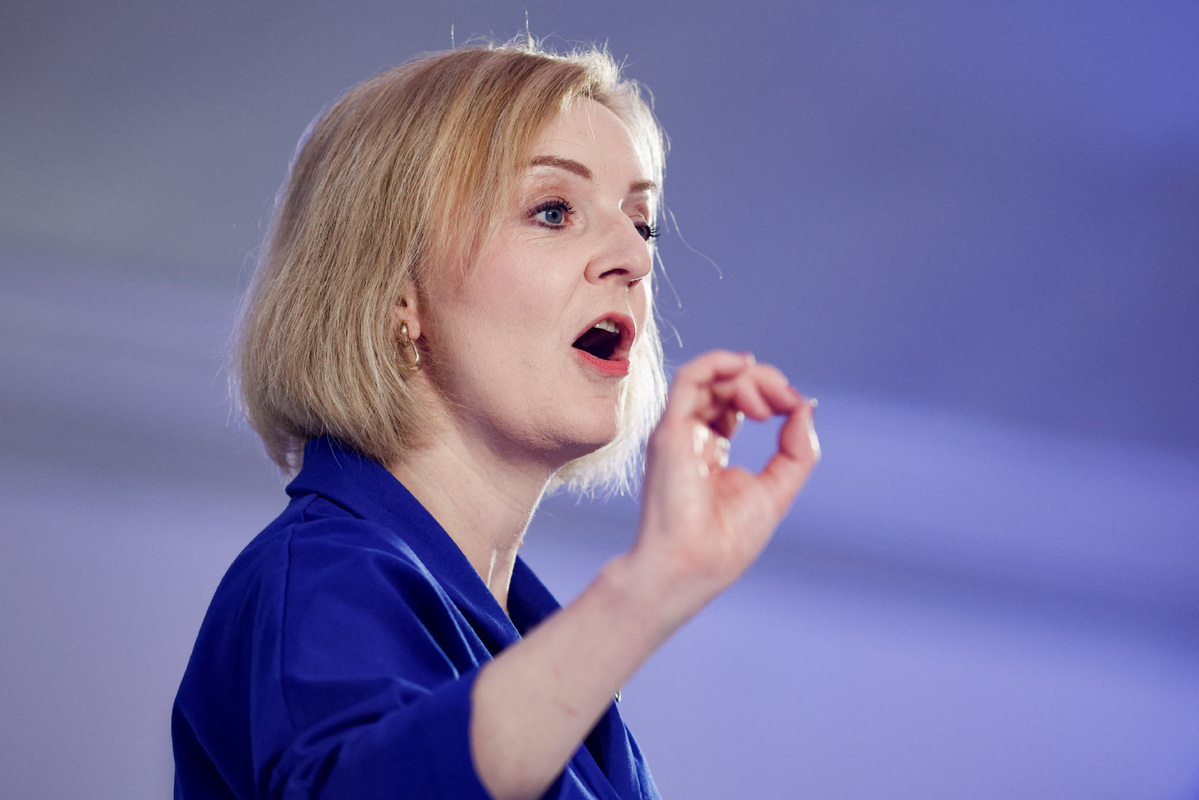Anger as potential UK leader ducks interview


PM candidate says she did not have time but critics say the move 'lacked courage'
Britain's Foreign Secretary Liz Truss has been criticized for pulling out of a high-profile BBC interview just before the end of the race to find out who will be the country's next prime minister.
Truss and former chancellor of the exchequer Rishi Sunak are the last two candidates in the contest to replace Boris Johnson, who in July announced his intention to leave office, with the search for his replacement having dominated the British political landscape all summer, despite issues such as the fuel bill crisis.
Sunak was interviewed by BBC correspondent Nick Robinson on Aug 10, and Truss was scheduled to do the same on Tuesday, but at short notice a statement was issued by the BBC saying that her team said "she can no longer spare the time".
Robinson tweeted that he was "disappointed and frustrated" by the news, after both candidates had agreed to take part.
Truss is widely expected to emerge as the winner after voting by grassroots Conservative Party members ends on Friday, but there is concern that she could enter Downing Street without having faced any major public test of her credentials.
The scenario is similar to how Johnson guided the Conservatives to victory in the 2019 general election despite being the only major party leader who declined to allow himself to face a thorough examination of his policies and personality at the hands of another major political interviewer, Andrew Neil.
"We need a prime minister with the courage to stand up to dictators, not one who runs scared from political journalists," the opposition Labour Party's shadow foreign secretary David Lammy tweeted, while former Liberal Democrats leader Tim Farron said Truss's evasiveness "speaks of cowardice, insecurity, arrogance or a combination of all three".
Whoever replaces Johnson will be the third consecutive Conservative leader to become prime minister without being voted in by the public.
In 2016, Theresa May replaced David Cameron when he stood down following the Brexit referendum, and less than 12 months later she gambled on holding a general election to force through her Brexit deal, but ended up reducing the parliamentary majority she had inherited, making her problems worse.
In July 2019, May resigned, to be replaced by Johnson, who beat Jeremy Hunt in the head-to-head contest, and facing the same problems of a deadlocked Parliament that May had, in December 2019 he called an election on a promise to 'get Brexit done', and won a large majority, but within months, the novel coronavirus pandemic emerged, transforming the global political agenda.
Johnson's personal conduct during the pandemic was one of a number of factors that contributed to colleagues losing faith in him, as well as to two Conservative by-election defeats, culminating in his departure.
Whoever replaces him faces a daunting workload, with the fuel bill crisis growing by the day, a likely seasonal resurgence of novel coronavirus cases coming, and many unresolved issues around Brexit.

































